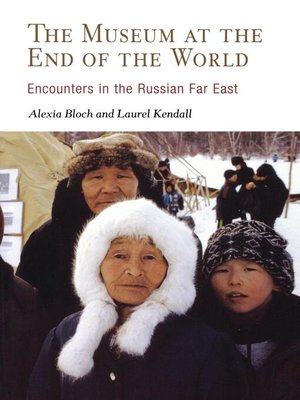
Sign up to save your library
With an OverDrive account, you can save your favorite libraries for at-a-glance information about availability. Find out more about OverDrive accounts.
Find this title in Libby, the library reading app by OverDrive.



Search for a digital library with this title
Title found at these libraries:
| Library Name | Distance |
|---|---|
| Loading... |
A little over a century ago the American Museum of Natural History launched its ambitious Jesup North Pacific Expedition to learn more about the peoples inhabiting the remote easternmost extension of Siberia and the northwest coast of North America. In The Museum at the End of the World: Encounters in the Russian Far East, anthropologists Alexia Bloch and Laurel Kendall tell the story of their journey through this same part of the world in 1998, retracing the old expedition as they link the expedition legacy of artifacts, photographs, and archival material from the museum in New York to the present-day descendants of its subjects.
Contrasting the time of the Jesup expedition with their own travel, the authors reveal a physical and cultural landscape that was profoundly shaken over the past century, first by Soviet control and then by that empire's unraveling. The Museum at the End of the World is not the story of a heroic adventure but rather a series of conversations about Siberian culture with museum workers, native scholars, performers and artisans, and a great variety of ordinary people. They reveal a strong concern about past legacies, cultural preservation, and their uncertain future as they struggle to reinvent themselves.
The authors' combination of travelers' curiosity and professional inquiry provide a compelling portrait of life in the Russian Far East and a meditation on the fate of culture and tradition in the face of hard economic times and sudden autonomy after decades of state control.







